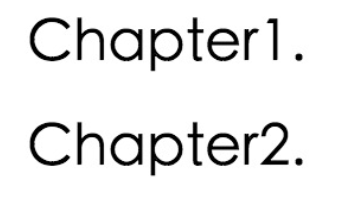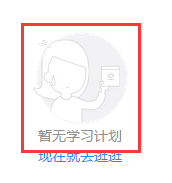伪元素before after
什么是伪元素(Pseudo element)?
伪元素不是真正的元素,不存在与文档之中,所以js无法操作他。那为什么叫他“元素”?因为我们可以对其进行跟元素几乎无差别的操作。
伪元素有哪些?
before,after,first-letter,first-line。
我们为什么需要伪元素?
伪元素是创造关于文档语言能够指定的文档树之外的抽象。例如文档语言不能提供访问元素内容第一字或者第一行的机制。伪元素允许设计师引用它们,否则这是难以办到的。伪元素还提供样式设计师给在源文档中不存在的内容分配样式(例如::before和:after能够访问产生的内容)——百度百科。
怎样表示伪元素?最好使用双冒号,防止与伪类混淆。
hey::before{
}
hey::after{
}
before与after的用法总结
before定位的基准是其主元素的右上角,after定位的基准是主元素的结尾处。当主元素没有内容时before与after仍会正常工作,属性为inline元素,若需要设置高宽度等属性需要display:block;。
<!DOCTYPE html>
<html lang="en">
<head>
<meta charset="UTF-8">
<title>Document</title>
<style>
p{
border:1px red solid;
}
p:before{content: "hey ";
position: relative;
left: 20px;}
p:after{content: "you are handsome!";
position: relative;
left:20px;
}
</style>
</head>
<body>
<p>安静!</p>
</body>
</html>


content是伪元素必需的属性,其内容可以分为几类:字符串/attr/url/counter(计算器)。若伪元素没有内容,需赋值为空格:content:' ';
<h2></h2>
<h2></h2>
<style>
body {counter-reset:section;}
h2:before {
counter-increment: section;
content: "Chapter" counter(section) ".";
}
</style>

before与after的主要用途是对元素默认样式的的美化:美化时需要结合定位于内容。一般讲主元素设置为position:relative,伪元素设置为position:absolute,以方便对伪元素定位。
a {
position: relative;
display: inline-block;
outline: none;
text-decoration: none;
color: #000;
font-size: 32px;
padding: 5px 10px;
}
a:hover::before, a:hover::after { position: absolute; }
a:hover::before { content: "\5B"; left: -20px; }
a:hover::after { content: "\5D"; right: -20px; }
更多效果点这里:这里这里
对checkbox/radio美化:
.magic-checkbox {
position: absolute;
display: none; //先隐藏真正的checkboxbox
}
.magic-checkbox + label {//为与checkbox搭配的label使用样式
position: relative; //相对定位,方便其内容的伪元素进行定位
display: block; //块元素
padding-left: 30px;
cursor: pointer;
vertical-align: middle;
}
.magic-checkbox + label:before { //label添加:before伪元素,用于生成一个带边界的正方形,模拟复选框的轮廓
position: absolute;
top: 0;
left: 0;
display: inline-block;
width: 20px;
height: 20px;
content: '';
border: 1px solid #c0c0c0;
border-radius: 3px;
}
//为checkbox添加:after伪元素,作用是生成一个√图形,模拟checkbox选中状态,未选中状态下会被隐藏
.magic-checkbox + label:after {
top: 2px;
left: 7px;
box-sizing: border-box;
width: 6px; //实现√图形很简单:设置一个长方形,去掉其上边界和左边界,剩下的2个边界旋转45度就得到√形状
height: 12px;
transform: rotate(45deg);
border-width: 2px;
border-style: solid;
border-color: #fff;
border-top: 0;
border-left: 0;
position: absolute;
display: none; //√形状先隐藏
content: '';
}
//单击label,隐藏的checkbox为checked状态,这时设置checked状态下搭配label的:before伪元素背景和边界颜色
.magic-checkbox:checked + label:before {
animation-name: none;
border: #3e97eb;
background: #3e97eb;
}
//checked状态的checkbox搭配的label伪元素:after此时设置显示,那么√就显示出来了
.magic-checkbox:checked + label:after {
display: block;
}
实际效果点击:这里这里
利用:after属性还可以对主元素进行批注:
.empty__bg {
display: inline-block;
width: 95px;
height: 92px;
background: url(http://7tszky.com1.z0.glb.clouddn.com/FvD_sYY4Fmp_yKS0E07H-5jhuKTB) no-repeat;
background-size: 95px 92px;
position: relative;
margin-bottom: 16px;/*注意这里需要留好位置放置after元素(它是absolute进去的)*/
}
.empty__bg:after {
content: "暂无学习计划";
display: block;
font-size: 14px;
line-height: 24px;
text-align: center;
width: 100%;
color: #909090;
position: absolute;
top: 100%;
left: 0;
}
}







【推荐】国内首个AI IDE,深度理解中文开发场景,立即下载体验Trae
【推荐】编程新体验,更懂你的AI,立即体验豆包MarsCode编程助手
【推荐】抖音旗下AI助手豆包,你的智能百科全书,全免费不限次数
【推荐】轻量又高性能的 SSH 工具 IShell:AI 加持,快人一步
· AI与.NET技术实操系列:基于图像分类模型对图像进行分类
· go语言实现终端里的倒计时
· 如何编写易于单元测试的代码
· 10年+ .NET Coder 心语,封装的思维:从隐藏、稳定开始理解其本质意义
· .NET Core 中如何实现缓存的预热?
· 分享一个免费、快速、无限量使用的满血 DeepSeek R1 模型,支持深度思考和联网搜索!
· 基于 Docker 搭建 FRP 内网穿透开源项目(很简单哒)
· 25岁的心里话
· ollama系列01:轻松3步本地部署deepseek,普通电脑可用
· 按钮权限的设计及实现